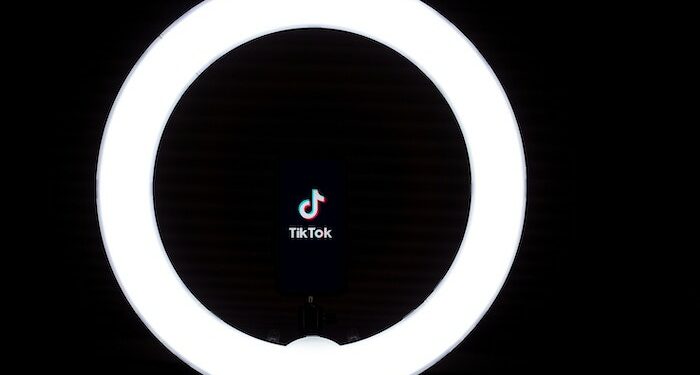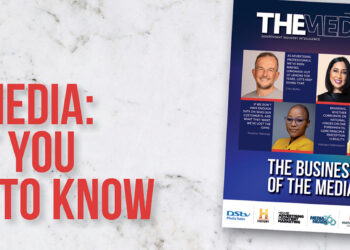Once upon a time, the world of digital platforms and marketing was all about influence and reach. But in recent years, the marketing sector has made a conscious effort to return to its roots, the focus of which is stirring emotions in consumers through creativity and entertainment – rather than followers and influence.
The phenomenal rise of TikTok as a platform has been instrumental in driving this transformation. Not just adept at cultivating the next generation of creators, the platform is also redefining the very concept of influence.
From its earliest days, ‘influence marketing’ has been tied to popularity and status. Starting with brand endorsements in the 1940s, to celebrity partnerships in the 1960s and ’70s, or influencer collaborations in the 2010s, the name of the game has always been about fame and recognition. Influencers were the reigning monarchs, whatever the platform.
But the advent of digital platforms levelled the playing field. Fame and attention were no longer the exclusive domain of celebrities or athletes. Influence became open to all – the likes of bloggers, home cooks, stay-at-home mothers, and even serial vacationers.
Skill and expertise
In the early days of digital platforms, influencers were the new darlings of marketing, amassing large followers based on their persona and lifestyle – and brands flocked to them in droves to get their products in front of a massive audience.
However, the key drivers of influence have made a U-turn, and are today dominated by skill and expertise. The new currencies on interest-based platforms such as TikTok are knowledge, passion, ability, competence and know-how.
Today, the term ‘creator’ has a much more significant impact. Operating within a content graph based on interest – as opposed to influencers who work within a social graph where their clout is derived from follower numbers – TikTok creators have decentralised the concept of influence and made it more inclusive.
Their clusters of influence are one where people come together based on the relevance of their content or interests, or for their proficiency in a particular niche, not for their persona or image. Creators also inspire trust and confidence in digital platform users.
New cultural currency
According to an IPSOS study, 82% of viewers say TikTok creators’ content is more unique and creative. The influencer aesthetic and persona are losing appeal, with 76% of viewers saying TikTok creators feel “approachable” and they can “connect” with them.
Authenticity is thus the new cultural currency.
This shift from influencers to creators signifies a more profound change for the marketing industry – a move away from surface-level popularity towards deep-rooted expertise. Today’s consumers are savvy, seeking authenticity and value from the content they consume.
This focus on expertise is also reflected in the way brands are choosing their collaborators. Instead of partnering with influencers based on follower count, brands are now seeking creators who can bring their unique perspectives to the table.
This approach allows brands to tap into the creator’s loyal and engaged audience, which often results in higher engagement rates and better ROI.
Credibility of creators
The credibility of creators also leads to a positive business impact for brands. Brands can partner with creators to be real culture drivers, bring authentic ideas to life, increase their value proposition, launch their products or services, and bring out their playful side.
Creators drive favorability and trust, boiling down to authenticity and passion – and brands can work with creators to tap into that passion. This marketing approach that marries technology, entertainment and ideas can foster deeper connections with consumers, as they perceive the brand to be aligned with their interests and beliefs.
As the partnership between brands and creators flourishes, it creates a ripple effect, with the brand becoming a cultural force and influencer in its own right.
It naturally follows that relevance is the new reach. Within the digital landscape exists a burgeoning community of nano and micro creators who command audiences that are highly relevant to specific industries.
Mutual engagement
Over recent years, the focus of marketing has been predominantly on optimising media usage. However, platforms such as TikTok have played a pivotal role in cultivating the next generation of creators and rekindling emotion and creativity at the heart of marketing’s mutual engagement strategies.
TikTok’s influence in shaping the digital landscape is underpinned by embracing and leveraging the power of these new creators, as they redefine the boundaries of content creation and help reshape the marketing strategies of brands.
This shifting consumer landscape sees the rise of the ‘prosumer’ and the emergence of authenticity as the only entry point. As per an IPSOS study on the power of TikTok creators, 68% say TikTok creators are authentic, and 81% replicated content recommended or shown by content creators.
Moreover, when replicating the content, 65% of users showcase the brand in their content, indicating a high level of brand engagement.
Marketing fundamentals
The shift from influencers to creators, and from popularity to expertise, signals the return to marketing fundamentals that focus on forging meaningful and memorable connections with consumers.
As brands embrace this change, they can leverage the ability of platforms like TikTok for collaboration and create marketing strategies that engage creativity and emotion, presenting an opportunity to connect with their audience in more resonant ways.














